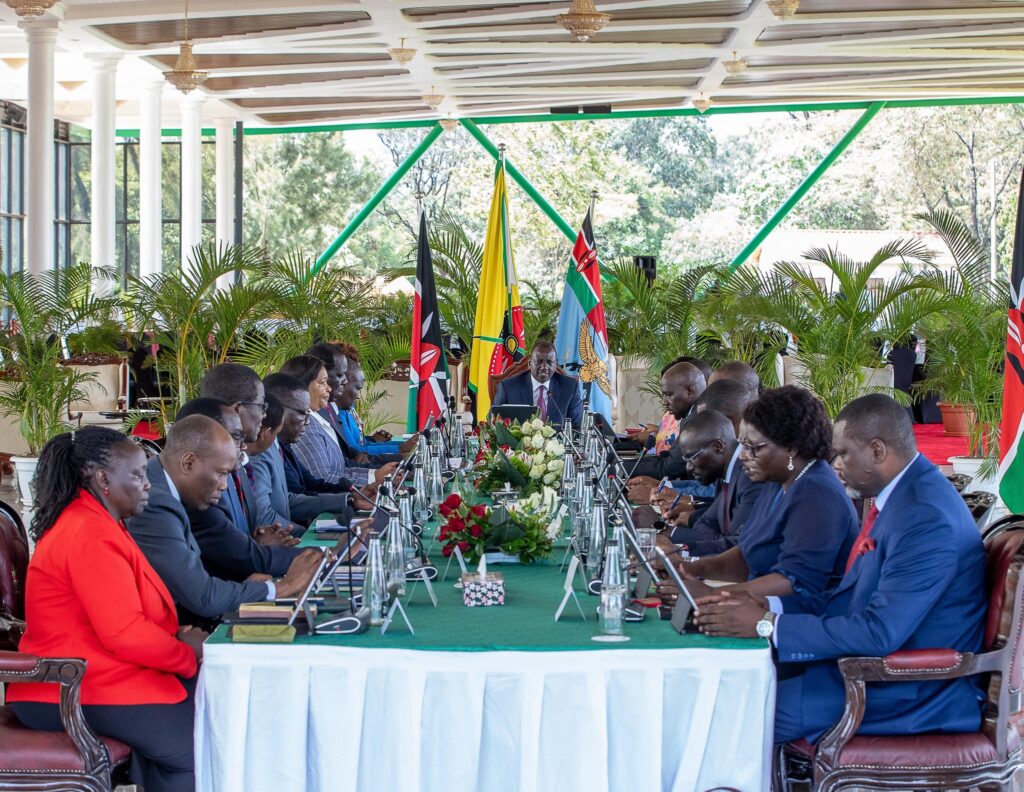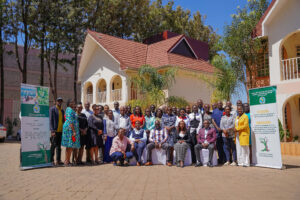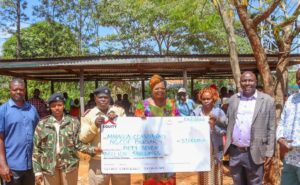Kenya Cabinet Approves Fiscal Reforms, Social Welfare Enhancements, and Global Diplomacy Initiatives
The Draft Pest Control Products Bill, 2024, was also approved to modernize pest control regulations, enhancing food safety and agricultural exports.

President William Ruto chairs Cabinet meeting at State House to advance fiscal discipline, social welfare, and governance reforms. Photo/Wiliam Ruto.
By Robert Assad
In a Cabinet meeting chaired by President William Ruto at State House, Nairobi, several key decisions were made to enhance fiscal discipline, social welfare, and governance in Kenya.
The Cabinet approved measures to cap the fiscal deficit at 4.5% of GDP for the 2025/26 financial year, down from 5.3% in 2023/24 and 5.1% in 2024/25, with a medium-term target of 2.7%.
This will involve revising the initial budget estimates of KSh4.3 trillion before tabling them in Parliament, aiming to reduce public debt vulnerabilities and ensure the delivery of essential public services.
To bolster social security, the Cabinet endorsed reforms under the Bottom-Up Economic Transformation Agenda (BETA), making gratuity payments for retirees in both public and private pension schemes fully tax-exempt.
Employers will now be required to apply all eligible tax reliefs when calculating Pay As You Earn (PAYE) taxes, addressing the current issue where employees must seek refunds from the Kenya Revenue Authority.
Additionally, the Judges Retirement Benefits Bill, 2025, was approved, establishing a dedicated pension framework for judges of superior courts, ensuring enhanced retirement benefits, including monthly pensions, gratuities, medical coverage, and diplomatic privileges for retirees and their spouses.
In a move to strengthen emergency preparedness following the 2023 El Nino rains, the Cabinet approved the Public Finance Management (Amendment) Bill, 2024, mandating county governments to establish Emergency Funds.
This decision stems from the 24th Ordinary Session of the Intergovernmental Budget and Economic Council (IBEC) in August 2024, aiming to equip counties to respond swiftly to future emergencies, protecting lives, livelihoods, and infrastructure.
Furthering public health and regional development, the Cabinet greenlit the construction of two Level VI teaching and referral hospitals in Bungoma and Kericho counties, in partnership with the African Development Bank, aligning with the Universal Health Coverage (UHC) agenda.
The Draft Pest Control Products Bill, 2024, was also approved to modernize pest control regulations, enhancing food safety and agricultural exports.
Additionally, amendments to the Capital Markets Act were endorsed to remove shareholder limits in regulated institutions, aiming to stimulate investment while retaining the Cabinet Secretary’s discretion to impose limits on specific license categories.
On the international front, the Cabinet approved the establishment of a Consulate General in Port-au-Prince, Haiti, underscoring Kenya’s commitment to global peace and security, and supporting its leadership role in restoring law and order in the Caribbean nation.








